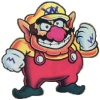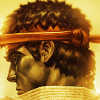
Judo na Olimpiadzie - regres do czasow sprzed Kodokanu?
Napisano Ponad rok temu
Kano's view of the Olympics in those innocent days of the twentieth century must have convince him that there was concord in attitude with his basic ideals...Already the arguments between amateurism and professionalism were being aired regularly and the importance of winning rather than taking part was gaining prominence. This was as much the case in Japan and Japanese judo circles as in other areas of sport.
In 1936, Kano wrote a letter to Koizumi which reveals a more equivocal attitude towards the Olympics:
I have been asked by people of various sections as to the wisdom and the possibility of judo being introduced with other games and sports at the Olympic Games. My view on the matter, at present, is rather passive. If it be the desire of other member countries, I have no objection. But I do not feel inclined to take any initiative. For one thing, judo in reality is not a mere sport or game. I regard it as a principle of life, art, and science. In fact, it is a means for personal cultural attainment. Only one of the forms of judo training, so-called randori or free practice can be classed as a form of sport. Certainly, to some extent, the same may be said of boxing and fencing, but today they are practised and conducted as sports.
Then the Olympic Games are so strongly flavoured with nationalism that it is possible to be influenced by it and to develop Contest Judo a retrograde form as ju-jitsu was before the Kodokan was founded.
Judo should be as free as art and science from any external influences - political, national, racial, financial or any other organised interest. And all things connected with it should be directed to its ultimate object, the 'benefit of humanity'. Human sacrifice is a matter of ancient history.
Another point is the meaning of professionalism. With judo, we have no professionals in the same sense as other sports. No one is allowed to take part in public entertainment for personal gain. Teachers certainly receive renumeration for their services but that is in no way degrading. The professional is held in high regard like the officers of a religious organisation (sic) or professors in the educational world. Judo itself is held by us all in a position at the high altar. To reconcile this point of view with the Western idea is difficult. Success, or a satisfactory result of joining the Olympic Games, would much depend on the degree of understanding of judo by other participating nations.
Gunji Koizumi published the letter in the Budokwai Bulletin in 1947. It was reprinted in Olympic Judo, History and Techniques by Nicolas Soames and Roy Inman, Ippon/Crowood 1990.
Napisano Ponad rok temu
To mi się bardzo podoba. Z resztą powinno tak być z każdą sztuką walki. Pod jednym względem judo się to udało, mianowicie nie ma tu właściwie organizacji, drużyn i tak dalej, a co za tym idzie niesnasek między nimi, rozłamów i tym podobnych. Jest po prostu judo. Jednak olimpiada czy nie, myślę, że judo wylgądałoby dzisiaj podobnie, jak wygląda teraz. Może trochę bardziej tak jak te dziesięć czy piętnaście lat temu (patrz temat obok), ale na pewno nie wyglądałoby [link widoczny dla zalogowanych Użytkowników]. A szkoda.Judo should be as free as art and science from any external influences - political, national, racial, financial or any other organised interest.
Napisano Ponad rok temu
Napisano Ponad rok temu
JudoInfo - Co co myślisz występu o kadry USA Judo w Atenach tego roku?
Mike Swain - Wyniki ekipy USA w Atenach były przeciętne. (...) Budżet zespołu USA w Judo jest mały w porównaniu do Francji i Japonii jednakże wyniki Francji nie były wiele lepsze. Jest siedem kategorii wagowych i z wyjątkiem Japonii żaden inny kraj nie zdominował wszystkich. Nadal możemy wiele poprawić ale faktem jest, że jest to twardy sport z wieloma zaangażowanymi w niego krajami.
JI - Co USA muszą zrobić, by stać się naprawdę konkurencyjną siłą w świecie Judo?
Mike Swain - Aktualnie nie ma żadnego określonego programu treningu w USA, którego celem byłoby zdobycie złotego medalu na Olimpiadzie. Znaczące, że nie mamy funduszy i jest nas mało, dlatego wierzę że najlepszą drogą po 17 albo 18 roku życia jest nadal wyjazd za ocean do Japonii, aby kontynuować na wysokim poziomie wyczynowy trening na Uniwersytetach i rywalizować na zawodach w Europie, gdzie Judo jest dużo bardziej popularne. Raz poznany smak międzynarodowego Judo wtedy motywuje młodych do pracy nad sobą.
Wierzę, że możemy utworzyć wielki Program USA dla dzieci i młodzieży poniżej 18 lat, który przygotowałby ich technicznie, by być gotowym do walki w Japonii i Europie. Większość najlepszych krajów nadal wysyła swoje kadry na szkolenie do Japonii i Korei albo Francji. Również jest dużo krajów byłego ZSRR, których reprezentanci są medalistami Znają techniki sambo i zapasów i wiedzą jak obronić się przeciw nim - mają przewagę, ale w końcu czysta szybkość, mocny uchwyt i technika nadal wygrywają złoto w Judo.
JI - Wspomniałeś o pieniądzach i roli roadblocks(?) dla naszego programu Judo. Wydaje mi się, że zwykłe "amerykańskie" metody, by wygenerować obie (np. Czerwone Byki jako logo na tatami, dzieci noszących różnokolorowe judogi) kolidują z tradycjami Judo. Nawet twoje Profesjonalne Judo Sportowe mogłoby prawdopodobnie być widziane przez tradycjonalistów jako trochę konflikt z ideałami prof. Kano. Co powinniśmy zrobić, by uchwycić umysły dzieci i dolary korporacji amerykańskich bez odstawania za daleko od korzeni Judo?
Mike Swain - Tak Moje Profesjonalne Judo było konfliktem ale przynajmniej doprowadzilismy Judo do TV dla widzów. Pomysł opierał się na pokazaniu więcej akcji, więcej rzutów z łatwym systemem oceny. To działało, ale potrzeby finansowe dla podtrzymania Programu były zbyt duże. Dopóki nie znajdziesz się w telewizji, jesteś nikim.
(...)
JI - Jaki skutek wg ciebie (jeżeli jakiś był ) miało rozpowszechnianie się Brazylijskiego Jitsu Jiu w czasie ostatniej dekady dla Judo i zawodników Judo?
Mike Swain - Nie sądzę, aby na najwyższym poziomie BJJ miało jakiś wielki wpływ. Chociaż parter w Judo jest oparty na prawie tych samych technikach co w BJJ (dźwignie i duszenia), to jednak walka w Judo ma szybsze tempo również w parterze. Z powodu reguł musimy wykonać coś na glebie w 20 sekund albo szybciej. Tak, że zmienia się twoja strategia i wysilasz się, by być dużo bardziej agresywnym i bardziej otwartym na macie. Jednakże, na bardziej początkującym i pośrednim poziomie możesz nauczyć się i zastosować dużo technik i kombinacji parteru BJJ dużo szybciej. Myślę, jeżeli ktoś może ćwiczyć przekrojowo, to w długim okresie twoja walka Judo będzie mocna. Naucz się parteru i stójki jako początkujący, to w dłuższym okresie czasu twoja walka (game) się poprawi.
JI - Co co myślisz o nowoczesnym MMA, które rozwinęły się od widowiska do rangi bardziej prawowitego sportu?
Mike Swain - Myślę, że nowoczesne MMA otwierają oczy każdemu na fakt, że tylko dlatego, ze jesteś twardy w jednym sporcie albo sztuce walki, twoje szanse są niskie, chyba, że masz doświadczenie w uderzaniu i parterze. Kompletny zawodnik musi szkolić się w wszystkich aspektach. Ostatecznie wygra zawodnik z techniką, największym sercem i duchem walki!
JI - Co co myślisz o pomyśle, że MMA stwarza okazję dla Judoków, by walczyć tam po lub zamiast na Olimpiadzie? Czy myślisz, że cos takiego jest dobre albo złe dla Judo?
Mike Swain - To byłby jak pytanie gracza w ping ponga , czy chce zagrać w tenisa. Myślę, że przewagą Judo jest fakt, że to jest olimpijski Sport z 180 krajami uczestniczącymi w nim. MMA jest jeszcze do tego daleko. To jest trudne do zrozumienia dla Amerykanów, którzy aby zrozumieć jak duże jest Judo, podróżują do Europy albo Japonii. Szczególnie wobec szału na punkcie UFC itd w Stanach. Nawet w Brazylii, gdzie BJJ jest od Judo jest większe i bardziej popularne wśród dzieci. To są zbyt różne środowiska walki. Gdy każesz założyć judogę najtwardszemu zawodnikowi MMA i zgłosisz go do walki na regułach Judo, to będziesz widział bardzo sfrustrowanego zawodnika. Jeżeli dobry wojownik Judo chce spróbować w ringu MMA, musi trenować uderzanie i grappling bez gi przed wejściem do ringu.
JI - I na koniec, co myślisz o aktualnych regułach IJF? Myślisz że ogólnie koka i yuko są dobre, czy powinniśmy uwolnić się od nich i zbliżyć się przez to do zasad All Japan? Czy także skupiony na ne-waza judoka jest wystarczająco dobry na glebie w nowoczesnej walce?
Mike Swain - IJF porusza się w kierunku położenia nacisku na więcej akcji, ale w ślimaczym tempie. Zasadniczo moje Profesjonalne Judo jest teraz tam, gdzie IJF będzie za 10 lat. Dopuszczenie dłuższego czasu walki w ne-waza w Judo jest wielkim pomysłem, tak długo jak obaj zawodnicy są agresywni i nie przeciągają walki lub nie odpoczywają. Tym co chcą fani to rzuty, kończenia, starcia dwóch silnych charakterów. Właśnie dlatego Pro Wrestling robi pieniądze.
Mike Swain jest pierwszym człowiekiem z półkuli zachodniej, który zdobył złoto na Mistrzostwach Świata judo.
Wywiad zaczerpnięty ze strony [link widoczny dla zalogowanych Użytkowników]
Napisano Ponad rok temu
Napisano Ponad rok temu
In 1998 at the US Open a relatively big man came up to me and told me that I didn't have to throw everyone in order to win.
That man defeated EVERY Olympic and World Champion during his time as a Judo player.
That man was Leo White. Leo White told me that I need to learn how to "schmoooooooze"
the referees and he told me exactly how to do it.
The one thing that he told me to remember is this:
THING NUMERO UNO:
The referees are human. Therefore they make mistake and they tend to favor individuals.
It's natural. They're human.
Since this is a known fact, the thing that you need to do is put yourself on their good side.
THING NUMERO DOS:
Whether you believe it or not, people do judge a book by its cover.
Since this is a known fact, ,the thing that you need to do is blend in with the socio-political climate and NOT go against the grain in this respect.
People LOVE to hear the sound of their names.
Call them by name when you get an opportunity.
They feel respected, revered and honored
THING NUMBER THREE:
If you get a bad call. Accept the call. THE CALL IS NOT GOING TO CHANGE!! This isn't wrestling, it's judo - and the scores don't change because of an argument. Accept the call and then ask the referee in a kind manner, "What could I have done differently so that I would not have gotten such a call?"
After the ref replies, you should say, "Thank you very much for your insight and your time." And then walk away.
If you start attend tournaments as a professional and "working" the room and the refs, you will find your time on the mat will be a lot easier.
For the elite athletes. The easiest way to accomplish this is when you travel internationally. It is at these times when you are out of the country and you can sit down at the dinner table or over breakfast and have normal conversation with the referees. This time is golden and is just as important as the tournament.
Understanding that judo is just as much about relationships as it is fighting is VERY important.
If you own a copy of The Grind, you can clearly see, how a conversation that I had with a referee at the Tre Torri tournament in Italy, came back to bite me in the @ss.
The same ref that I was talking (arguing) with, ended up refeering my match in the finals. And he really stuck it to me good.
But, that's how it goes and hopefully you can learn from my mistakes.
......
The one thing that athletes don't recognize is that a professional approach to judo really makes a difference.
Admittedly, when I used to coach in the chair, I would sometimes turn my hat to the back and sit down and coach.
I really had to look around at Jason Morris, Ed Liddie, and some other of the professional coaches and I very quickly began to don a collared shirt, no hat, a pressed pair of jeans and some conservative tennis shoes or some walking shoes. I also began to ask my athletes to dress appropriately during the registration portion of the events (it does make a difference).
I really found out that "the calls" that you get on the mat have a relationship (although not necessarily causal) with your results. I've seen Jason Morris and Jimmy Pedro get some great calls that I used to think was unfair in my youth. It wasn't until I got older that I realized that they EARNED the respect that they had been and are given.
.........
Judo, on the higher levels, is a chess match - plain and simple. From the mat to the chair.
There is a sport inside of the sport that you MUST learn if you want to be good. If nobody has shared this with you before, then here I am to tell you. Please don't crucify the messenger. I've been fortunate enough to learn it and share it.
Is it good? Is it bad?
Well, I don't believe those are the questions we should ask. The question really is:
Is is necessary?
And the answer to that question is......... it depends.
I can tell you right now..... that it was necessary for me. I've never done this, but this is a good thread where we all can learn so I'll share....
Caution: This discussion is not for the the judo purist.
Here is a conversation that Ed Liddie and I had before a match (the best I can recall it):
Ed: Look, good judo is not going to win this match. I need for you to go out and make it look ugly.
Rhadi: No problem. Here's what I'm going to do. I'm going to rush out there, do a double leg, act like I'm doing some newaza and then immediately get the next attack. That will put me up 2 attacks. Then you do what you do.
Ed: (laughing) No problem, we'll be up by a shido by :45 seconds in the match and then we'll go 1 to 2. (that means I'll attack once after my opponent attacks twice). That will allow us to even up the energy consumption from you starting out fast. Don't get lazy with the grips. Then in the last minute we'll kick up the pace. Can you throw this guy? Is he right or left?
Rhadi: Lefty. Bro. this dude beat the &%*# outta me at the camp a couple of weeks ago in Hungary. I don't think I can throw him and his overhand left is a daffodil to stop.
Ed: I think you can get him with sode, if not, just keep doing it.
Rhadi: Bro. I don't do sode.
Ed: (with a pissed look) That's not the point.
Rhadi: okay, leg attacks, newaza and sode. That's it.
Ed: That's it. Control the sleeve, make it look ugly, frustrate him and I'll do the rest.
Rhadi: Cool.
Ed: Cool.
This conversation happened before I played a person from Ukraine at the New York Open in (I believe it was 2003). It wasn't Mashurenko, I fought him in the finals, but I also fought his teammate earlier in the day. It was a tough match and I won, Yuko to Koka, really Chui to Shido. My opponent was clearly pissed and frustrated, I recall a point in the match that I looked over at Ed and smiled and started laughing when I was walking to the line because I could clearly see my opponents frustration.
By the way, in my opinion, Ed is one of the best coaches of all time in US Judo. I've clearly learned more from him in terms of coaching judo than anyone. He's a genius. He's not a miracle worker, but he is a good coach.
Rhadi Ferguson
Użytkownicy przeglądający ten temat: 1
0 użytkowników, 1 gości, 0 anonimowych
 FaceBook
FaceBook
10 następnych tematów
-
 JUDO vs ZAPASY w stylu wolnym
JUDO vs ZAPASY w stylu wolnym- Ponad rok temu
-
 Video's Beijing Olympia
Video's Beijing Olympia- Ponad rok temu
-
 wplatanie judo w zawody bjj - przyklad Lloyda Irvina
wplatanie judo w zawody bjj - przyklad Lloyda Irvina- Ponad rok temu
-
 Judo dla dzieci w Łodzi
Judo dla dzieci w Łodzi- Ponad rok temu
-
 judo olympijskie - wazne pytanie
judo olympijskie - wazne pytanie- Ponad rok temu
-
 Co dalej ze sprawą Franka ??
Co dalej ze sprawą Franka ??- Ponad rok temu
-
 transmisja z olimpiady?
transmisja z olimpiady?- Ponad rok temu
-
 pytanie.....
pytanie.....- Ponad rok temu
-
 judo szczecin
judo szczecin- Ponad rok temu
-
 Igrzyska Olimpijskie
Igrzyska Olimpijskie- Ponad rok temu







